

Lost in myth: “The End”?
Lost is dead. Long live Lost. And so it ends, in much the same way it began: with a close-up of Jack’s eye, staring straight up past the tall stalks of bamboo that circled the sky above. This time however, that eye would close, and with it, our six-season journey that took us right back to where we started — with questions about a mysterious show that seemed to parallel the mysteries of life. For some, the journey was far more compelling than the destination. For others, it was the perfect resolution and they can walk away feeling fulfilled. Whatever you thought about the conclusion, the one thing most viewers can agree on is that the show challenged us to think in ways we might not have otherwise. In short, Lost was a real trip. And what a long, strange trip it’s been.
While it’s the mysteries that got us hooked on Lost, it’s the characters that kept us interested enough to care. It should seem logical then that Lost would resolve both of these important elements of the show. Concerning the characters, “The End” brought an emotional and mostly fulfilling resolution to their stories. Though some may take issue with the means in which this resolution was provided, for the most part, the arcs of the main characters were absolutely closed. Concerning the mysteries however, their answers were pretty much put in the hands of the viewers to decide for themselves.
Not only did Lost not provide the big answers fans wanted, it didn’t even provide a context for us to figure them out on our own. The biggest answer it gave was to a question that wasn’t introduced until season six started. That answer was that the flash-sideways world was an illusionary holding area or purgatory that the Losties created for themselves so that they could all reunite and move on to the next stage together. While the story seemed to make this pretty clear, other viewers argued that a different explanation was implied. So, before deciphering the ultimate meaning of Lost, we first need to look at these two different interpretations of its last fifteen minutes and understand the implications of each.
The Flash-Sideways as Purgatory: The Titanic/South Park Resolution
Most of those who believe that the flash-sideways were supposed to be a purgatory of sorts, also believe that the island was supposed to be real. These viewers base their conclusion mostly on what Christian said to Jack at the end of the episode. He said that he was real, Jack was real and “everything that’s ever happened to [Jack] is real.” He also said, “The most important time in your life was the time that you spent with these people. That’s why all of you are here. Nobody does it alone Jack.”
This interpretation is very similar to a recent episode of South Park where the ghost of Michael Jackson is having trouble moving on but finally joins other recently dead celebrities (on an airplane-like purgatory) to all move on…to hell. It’s even closer to the end of Titanic where the 90-something Rose character dies only to be reunited in the afterlife with the crew of the Titanic, including her lost love, Jack. While one would think that members of her family (who had been with her for a much bigger portion of her time on earth) would’ve greeted her at the threshold of the next realm, like Lost, the message is that it’s actually those who help you grow the most, including your soul mate, who are actually the most valuable to your life.
Personally, I believe that the family, friends and lovers who are closest to you are exactly those who are meant to help you overcome your biggest challenges, explaining why they are in your life for so long. However, the island on Lost and the ship on Titanic are both metaphors for our world. Therefore, the metaphor works since the characters depicted in each afterlife were those who helped the protagonists grow the most during their time in each place. Perhaps the only exception would be Ben who definitely provided the challenges to help the Losties grow, but he chose to wait it out and not join them in moving on to the next level.
If the sideways-flash was purgatory and not an alternate reality as fans originally thought, we can infer that Faraday/Jack’s plan with the bomb did not work, but in fact helped cause the Incident that killed Juliet, and ultimately caused Flight 815 to crash. The implication here is that while people may be the variables who can make choices, they cannot make choices that go beyond the realm of the equation. In other words, while you can carve your own path to your destiny, you cannot create a new destiny for yourself. The universe will course correct whenever you begin to stray. This also is in line with my own beliefs.
Despite seeming to be the intention of the writers, there is admittedly something confusing about the realistic sideways world turning out to be the fantasy-like purgatory and the fantasy-filled magical island actually being real. However, once again, there is a message here. The message is that things are often not as they appear. Most of us assume that the physical world we live is real, and many assume that the mythical idea of a world beyond this one — whether it be heaven or some other dimension that exists beyond our own — is the stuff of religious fairytales. But as Lost has shown us, an afterlife world, while completely imaginary, might seem very real to its occupants while a mythical island that seems to be an illusion, might in fact be the true reality.
This begs the question, “what is real?” Is the world we live in now, the one that most resembled the flash-sideways world, real? Have we all really died and now need to let go of our lives in order to move on? Or, is this world simply some illusionary dimension that hides the real truth of existence? Lost doesn’t answer these questions, it just presents them. But in doing so, it seems to be presenting us with some deep concepts that we at least might want to explore.
Another implication of making an imaginary realm real and a realistic realm imaginary is that these two worlds are connected, and one is no realer than the other — all is one. I’ve written before about how the island seems to represent our world and the off-island reality more like heaven, but that the reverse could also be true. The metaphor is interchangeable because one realm reflects the other, and vice-versa (this explains all the reflections in the sideways-world). In other words, what happens in the earthly realm corresponds with a happening on the celestial plane. (“As above, so below.”) Lost has shown us how the events of the flash-sideways world corresponded to events that happened on the island, and vice-versa. Kate helped Claire deliver her baby, Charlie helped Desmond get to Penny, Lock helped Jack find faith, etc. So what if the world we live in now is running according to events that have been written someplace else? Again, Lost isn’t giving answers; it’s just giving us something to think about.
So far, the mythological messages one can infer from this interpretation of the finale seem to resonate. Let’s take a look at the other interpretation to see if it fares as well.
The Island as Purgatory
After watching the finale, some Lost viewers felt, at least initially, that the Losties had been dead ever since the plane crash and that the island was an initial level of purgatory where they would stay until they overcame their earthly issues. While this group has been accused of “not getting the point” or “not paying attention,” there is definitely a value to exploring the implications of this view even if it wasn’t what the writers had intended. Often in mythology, there is meaning beyond what its creators intend, and since this is the explanation that resonated with a rather significant group, perhaps we should at least look at why.
From this group’s perspective, the island was a purgatory of sorts and its occupants found themselves there either from dying in the crash of Flight 815 or from earlier deaths (i.e., Richard Alpert, Desmond, Rousseau). Those who lean towards this explanation site two main pieces of evidence.
The first has Jack returning to the same point where he died. While this makes a nice little loop from a mythological perspective, it can also be interpreted that this is the spot where Jack had originally died, so he was returning after being redeemed. Since “coming full circle” has been a theme of Lost, Jack returning to the spot we first saw him does make sense with just about any interpretation of the ending. Still, it does make more sense within the story if Jack is returning to the spot he died after finally overcoming his earthly issues and being able to move on to the next level. Otherwise, he could’ve just died anywhere.
Another argument involves the shots of Oceanic 815 wreckage on the empty beach that were shown during the end credits. The implication seemed to be that the Losties did die after all and none of them ever really wandered the island in a physical form. There has been a lot of arguing over this point. Fans denying the purgatory implication have interpreted the shots to stand for everything from a show homage or elegy, to an indication that like the Black Rock, Henry Gale’s balloon, and Yemi’s plane, the wreckage would serve as yet another remnant of people who had come to the island and are now gone, giving viewers some kind of explanation about the 4-toed statue, hieroglyphs, and temple. Turns out however, that ABC themselves inserted the images “to soften the transition from the moving ending of the show to the 11 p.m. news” and that “they were not part of the Lost story at all” but just a nostalgic look back at where the show began. (LA Times)
Okay, so the scenes were not part of the Lost story, but does that make them irrelevant? Perhaps. Or, perhaps as Lost has taught us, everything happens for a reason. Perhaps there is a deeper message going on here, one intended not by the Jacob-like powers of the show creators, but the island-like powers of the universe (more on this differentiation later).
If the island were a purgatory of sorts, the purpose of Lost‘s flashbacks could’ve been to show that the Losties were lost and alone in their lives, and thus weren’t moving forward. The flash-forwards illustrated that their lives wouldn’t have gotten any better had they lived. The island helped these lost souls so that they could move on. Having solved their issues on the island-purgatory, most of them then met up in another level of purgatory — a place they created. The purpose of this flash-sideways reality was to help them see how their lives could have been had they solved their issues while they were alive, and to be able to let go of that reality as well. This theme of a multi-leveled afterlife is not without precedent. It has been featured throughout mythology and movies, including Dante Alighieri’s Divine Comedy and the 1991 film Defending Your Life where Albert Brooks’ character must go through a series of trials in a purgatory-like holding station in order to move on to the next level. Similarly, the multi-leveled afterlife could make sense on Lost.
As Lost has depicted, there are usually two sides to everything. In this case, the island purgatory helped the Losties grow and deal with their fears while the flash-sideways purgatory helped them let go of regret — the life they never had. Whether you agree with or like this interpretation or not, it does have merit.
The implications of each of these two perspectives really requires some in-depth thought as opposed to knee-jerk reactions that one side or the other is definitely the “correct” analysis. Both viewpoints have their pros and cons.
If the island were “real” then the finale seems to be considerably clearer. Christian meant what he said about Jack’s experiences, and Jack really did save the world. The downside is that this explanation only really solves the mystery of the flash-sideways, and really could’ve been used to explain a show that had nothing to do with a mysterious island. In fact, it almost divides the show into two separate myths — that of the island and the flash-sideways, with their resolutions being “Across The Sea” and “The End” respectively. However, since Lost does deal with dual themes, this double myth does follow along with its own template. The dual themes also both come from the root “life as illusion” myth (The Wizard of Oz, Alice In Wonderland, The Matrix), which relates to the idea of another world going on behind the scenes that the show has alluded to so often. Still, while most fans agree that this flash-sideways-as-afterlife explanation is the intention of the writers, they also agree it doesn’t feel as fulfilling as a conclusion that could’ve explained both the sideways universe and the island. A unified Lost resolution would have been more fulfilling.
If the island were “purgatory,” it is better at paying off the mystery of the island. The reason why the Losties died there once their issues were resolved also makes more sense with this explanation since that’s one of the functions of purgatory — to help souls move off the borderline into either heaven or hell. And pretty much every other mystery of the island can be seen as relating to the tests created for purgatory purposes. This explanation also gives a chilling new insight into the bogus Flight 815 that Widmore had supposedly planted in the ocean. What if the plane really was the doomed Oceanic plane and the corpses inside the dead Losties? It certainly doesn’t make any less sense than Widmore planting the plane in the ocean full of dead bodies, a task that would be impossible to do in secret.
One possible flaw with this interpretation though, is trying to make sense of what Christian said about himself, Jack, and everyone else being real, and everything that ever happened to Jack (presumably including the island) also being real. For this interpretation to be true, does Christian have to have been lying? No, everyone Christian was referring to were actually dead, and not residing in a part of reality as we think of it at all. Therefore, when he says that everything that ever happened to Jack was real, he can simply be saying that everything Jack went though on the island purgatory was equally valid to everything from his life because they were both real to him. His experiences were real — as real as they are in this otherworldly dimension talking to the ghost of his dead dad. And since the Losties’ time together on the island helped them get to heaven, it was the most important part of Jack’s experience as Jack. So, Christian’s statement, while more metaphoric, is not a contradiction for this interpretation.
Another possible issue with this island-as-purgatory explanation is why Desmond, Danielle, and the Others were there. Well, perhaps they had all died as well (at sea, in air balloons, etc.) and were waiting on the island for those who could help them move on. Explaining Daniel Faraday and the freighter crew is also possible. After all, Faraday was involved with experiments that bridged reality to other dimensions. Perhaps he found the one that contained purgatory. The message for us is that purgatory, heaven, hell, and all of these afterlife themes are really just alternate dimensions that we get to experience when we’re done with this one. They exist to further purify the soul. Of course, they can also relate simply as a metaphor for multiple timelines, which gives credence to a third group who do not believe that either the flash-sideways nor the island was a purgatory-like realm at all, but just a bunch of parallel timelines.
The Flash-Sideways Were a Parallel Reality
Besides the two purgatory theories explored so far, there are hundreds of more explanations that viewers are using to make sense of the show. Some viewers don’t think that either the island or the sideways flashes were purgatory but parallel timelines. Their argument is that if the flash sideways universe was just all about Jack, what was the point of seeing the back-stories of all these other characters (i.e., John Locke’s relationship with Helen)? Some purgatory fans (from either camp) point out that the finale was just the experience from Jack’s perspective, and that each of the Losties had their own experience that wasn’t shown.
Whatever theory you’re leaning towards, or if none of them because you simply didn’t like the ending, there is a message here: no ending Lost could have delivered would have fulfilled such a complex storyline, rich mythology, and high viewer expectations. The writers were well aware of this and that’s why they acknowledged it in the show with Kate laughing about Christian Shephard’s name, reminding us that the story was an allegory from the start. Man in Locke’s comment about Jack being the predictable choice for Jacob’s replacement was another clue that the story shouldn’t be taken so seriously, but to instead look to whatever deeper meaning resonates with you.
I’m not apologizing for the writers’ reliance on building up mysteries they never intended to answer. Nor do I think that it’s impossible to pay off a complex mythology with a simple truth. Had Lost gone in a different direction, I think The Myth of Lost theory could have done just that (and perhaps in a sideways universe, it did). Still, even that theory polarized fans of the show and could not have satisfied everyone. The point is that Lost‘s story acted like an outline to introduce us to many different complex scientific, spiritual, religious and mythological principles, and amazingly, it was able to bring them together in an intriguing way that made viewers want to learn more. Whether you realize it or not, you are wiser for having experienced Lost.
Lost‘s creators have graciously left the task of understanding it up to you. After all, fans have come up with far more fascinating answers to mysteries than most of what Lost provided this season (The whispers were ghosts? The Black Rock was the victim of a tidal wave?). Might as well have them finish the job! Right now, a lot of fans have a sort of uneasy feeling in their gut. Was the ending a cop-out? Did the writers screw over fans by not at least offering a way to plug the island into a metaphor we could use to explain its mysteries? Like the questions left open by this show, only you can answer this. But I’d at least like to provide some glimmer of hope that watching Lost was well worth your time investment. Let’s begin by looking closer at the messages of the finale.
The Wisdom of the Finale
There is a lot of wisdom hidden within Lost‘s finale that isn’t contingent upon any particular interpretation of its final moments. In pretty much any interpretation, Hurley becomes the new Jacob and Ben the new Richard, and based upon their conversation in the flash-sideways afterlife, they had a successful time guarding the island (whether it was real or an earlier level of purgatory). So, despite his decision to allow the candidates to have freedom of choice, even Jacob himself was powerless to control the island’s choice for candidate. The island chose Hurley, not Jack.
The message then, seems to be that in life there really is no choice. Even the God archetype has no control over fate. Perhaps that’s because fate is ultimately the program that life must follow, and even God must abide by those rules, even if He himself created them. Perhaps this is why God does not interfere in our world or cause grand miracles that would make His existence more apparent. This would also make sense if we are all a part of God, as I believe, since while we are all fellow creators of this world, we are not consciously aware of where it’s going or what will happen. Someone who believes in complete freewill may offer another interpretation of this scene: that Jack couldn’t be manipulated into becoming the guardian and instead Hurley chose to. Equally valid. Like I said, these answers are up to you. I’m just bringing some of the major themes to a conscious level so you can have an opportunity to decide which feels the best based on your own experiences.
Another scene of the finale had Jack sacrificing himself to save the island. In effect, Jack still died attempting to fix something, which might explain why it took him longer than most of the other redeemed Losties to remember his island life experiences and move on with the rest of them. Even in that realm, he created a troubled relationship with a son he never had so that he could fix that — an attempt for him to come to terms with his own father’s accusation that he didn’t have what it takes. Even this wasn’t enough though. Jack then met up with John Locke so he could fix him. It was not until Jack met up with is dad at the end that he really was able to let go, just as his father’s voice echoed to him while he was still on the island (while in the cage at the Hydra station).
The message for us is that we create the drama in our lives. Some of us have a need for pain and suffering or an endless list of things to do to distract us from the pain we hold onto — pain that we don’t really want to deal with. But if we become conscious of the repeating patterns in our lives, we can refuse to continue the charade, and let go of our compulsion to do something that eases the subconscious pain we can’t get to. Once we become aware of the real source of that pain, we no longer need to create life experiences to temporarily deal with it. We can just see it for what it is, and let it go. The concept is simple but takes a lifetime or several to be able to accomplish.
While Jack took longer to let go, there was also Ana Lucia, Charlotte, Faraday and others who were apparently not ready yet at all. Of course, since there was not supposed to be time in that realm, this idea didn’t really make sense within the context of its own metaphor. Had they wanted to, the Lost gang could’ve just departed at the moment everyone was ready to leave so that they could truly be together. The point however, was just for us to understand that ultimately we’re all going to get to where we’re going eventually. If you decide to go anywhere at all, you have all the time in the world to get there. Our time, here, in this imaginary realm is all about us experiencing who we are. When we are ready to grow and leave this particular existence behind, great, there will be another one waiting with further challenges and pleasures. If we prefer to stay here and experience more, as Eloise Widmore did, that’s fine too. No worries.
The fact that the finale seemed to be all about Jack didn’t sit well with many viewers who wanted to see John Locke be redeemed — especially in light of Man In Black’s insistence on him being a sucker. While not obvious, Locke was definitely redeemed. His true redemption came from passing on his faith to Jack, and Jack using it to have the courage to stand up to Man In Black and kill him, saving the world. The message here is very similar to that found in It’s A Wonderful Life. We often don’t know how many lives we’ve touched over our lifetime. And may times, the people we’ve helped don’t even realize it themselves. The fact is though, we have all helped many, many people discover who they are and uncover their destiny. We’ve helped them get through challenges and stay balanced when times are good, or bad. Sometimes, our main contribution to this world even isn’t even fully realized until after we’ve died. Just look at Jesus, or John Locke. The archetype is the same, as it is with Superman. Much like him, you too are here for a reason, even if it doesn’t seem like it — your life is very necessarily to help us all get to where we want to go.
In this reality we live in, we are all in it together. Each of us is like a different piece of a clock, all of which are necessarily to make it function. Like Christian said, nobody does it alone. We live together and we die together too. In fact, according to many spiritual practices, groups of souls are reincarnated together. So your mother, best friend, worst enemy, coworker and lover have all been in your life before and will be again, taking on different roles. Perhaps this was one of the most fulfilling concepts of the Lost finale. Whether you believe it or not, it’s comforting to think that we never really lose the people we love. That like Michael Landon said in the Little House On the Prairie scene James watched in the sideways world, “people aren’t really gone when they die. We have all the good memories to sustain us until we see them again.” Knowing that James was himself dead while watching this scene makes it even more chilling, and relevant.
While I have been able to interpret much of the meaning of Lost in a way that makes sense to me, these answers may not work for you. There are also some aspects of the finale that I need more time to understand, like why Charlie was still a drug addict in the flash-sideways afterlife, but seemingly drug-free when Hurley saw his ghost at Santa Rosa. Was this a version of Charlie that existed after moving on in the church? Perhaps there’s meaning in this that will one day be clear to me, or perhaps it never will, and in that realization there is a message — that we cannot understand everything in life. Lost has helped with a lot, but like life, it too has its flaws.
Lost‘s parts were greater than its whole. It worked best as a group of individual myths that turned out to have a rather awkward way of tying them together. Since the show never really provided a direct link that could explain the mysteries of the island and make them relevant to our world, we are left without a deciphering key for decoding what they all meant, and therefore, are left wondering about Lost‘s ultimate meaning. On one hand, this is unfortunate because it leaves us struggling for a way to make sense out of what we just saw and make it relevant to our experience. On the other hand, that struggle has led to debate that will help us understand Lost as it applies on a more personal level. The answer to the show is in you, not the writers. They just provided the means to help us remember what we already know, and that includes the discussion and debate that I hope will continue for a long time to come. For my part, I’d like to help fuel that discussion by sharing my own thoughts of what the show was ultimately about — and these thoughts actually manage to bridge the sideways world with the island into one unified myth.
Making Sense of Lost
For me, the most important theme of Lost is that all these characters found themselves in a place that challenged them to overcome their deepest issues, and once they did, they died. Because of this, I have a problem with both purgatory explanations for the finale. If the island was real, what was the significance of the characters’ deaths after solving their issues? Apparently, the island felt that only a character with issues that would take eons to resolve would make a good steward of its golden heart. But after fixing that heart, why was Jack no longer eligible since his issue was to always fix things? Even if I’m looking into this too deeply (if there is such a thing), what does any of this have to do with the purgatory the characters ultimately find themselves in, since many of them didn’t even die on the island but long after?
I also have a problem with the island is purgatory explanation. For starters, I don’t think the creators would have lied about it if that was what it was the whole time. I also don’t think they would have been purposely misleading with Christians’ final statements — vague perhaps, but not misleading. Regardless, what was the point of the island’s time travelling if it was supposed to be an afterlife? This mixing of metaphors doesn’t seem to make the mysteries of our world any clearer.
I have an explanation that makes sense no matter which finale theory you want to believe. Either way, the challenges the Losties faced on the island helped them to grow tremendously to the point of redemption. This shared experience was so crucial, they all felt the need to move on to the next level together, and so created the sideways world as sort of a holding station where they could meet up. Okay, but how does this realm really connect to the island? It seemed that there were many people in this purgatory existence that were not on the island and not ready to wake up. And that’s the point.
It was only when the Losties remembered their incredibly challenging island experience that they were able to wake up from the illusionary sideways-world and “move on.” They did this by connecting to their constants — those who helped their souls grow the most during this very trying time. Translated literally, the message is about how the growth we experience in life, dictates how far we are able to go in the afterlife. Another way of looking at it deals with the times we live in today — behind an illusionary veil, and the apocalypse, or “revealing” that has been prophesized to come. Those who have grown enough up until now, will be able to move into this new age. And those who haven’t will still have work to do. Perhaps neither party will even realize that they’ve left the other, due to the existence of…wait for it…multiple timelines. At last! A unified explanation of Lost bridging spirituality, science, religion and myth as well as the three main interpretations of the ending sited above!
Once you overcome your challenges, you can move on. Lost had a different explanation but the same message as The Myth of Lost. In the book, the Losties all entered an imaginary realm to help them overcome their issues. And once they did, they could get out to live lives that would presumably be better than what they had before. On the show, the Losties all entered an imaginary realm after overcoming their issues where they were able to live lives that were presumably better than what they had before. Watching this season, I thought that the sideways world was going to turn out to be the Losties lives after getting out of the simulated world. I guess it’s appropriate that my favorite character on Lost was John Locke because much like him, I was wrong. But I was right about the sideways world happening after the events that occurred on the island, which I claimed since the season premiere, and right that the myth of Lost was ultimately a new rendition of the “life-as-illusion” myth.
Ego aside, the message works either way. In fact, it works best if you combine the two perspectives. We live, we are challenged, we are redeemed, we move on, we live, we are challenged, we are redeemed and on and on. Which is the real world and which is the imaginary one? Is fate written in the heavens first, and then we live it, does it happen simultaneously, or is it the other way around? Where does this story begin, or is it just a cycle that has no beginning? Perhaps the next modern-day myth to come along will help us with answers to these questions, now that Lost has helped us learn how to ask them.
In the end, it doesn’t matter how you interpret the story of Lost because the messages are the same. Whether you saw the island as a real, albeit mythical place, a level of purgatory, a simulation, a nexus to other dimensions, a dream, hallucination, Interactive game, or just a complete waste of time, it taught you much about the world we live in. You may not be conscious of it, or you may be conscious but don’t believe it, and that’s fine. The choice to accept or reject is part of the journey. Either way, you have been awakened to knowledge that you can use once you realize how.
What We Learned From Lost
The wisdom of Lost is a lot like The Karate Kid. At the beginning of the original film, Daniel must go through these seemingly meaningless tasks of wax-on/wax-off, paint the fence, sand the floor, and paint the house. Not until Mr. Miyagi comes around to show Daniel all that he learned can he begin to use his new-found skills. Similarly, through discussion, debate, blogs, podcasts, articles, and thought, we can figure out the messages of Lost for ourselves and how they apply to us. There have been so many lessons.
Lost taught us that we’re all connected, we’re all here for a reason, and that we get clues from the universe to uncover what that reason is. It taught us that these clues are everywhere and has trained us to look for them without most of us even realizing it. We’ve learned that no one is all good or all bad, and when you let yourself get to know people, you begin to understand why they act like they do. Through scientific, spiritual, mythological and religious themes on the show, we’ve learned that there are many ways of getting to the same truth. We’ve also learned that once we get beyond the illusionary world we live in — whether by dying or some cosmic revelation that pulls back another truth-concealing curtain — there will be another level there with its own set of challenges, and then possibly another and another. There are likely many, many levels to go through.
Finally, we’ve learned that there will always be mysteries. And while we may long to get the answers, once we have them, we long for the mysteries again. As we see with Lost and life, often the searching is more fulfilling than the finding. It is within the search that we discover who we are and how far our imagination, creativity, and growth can reach. The answer we uncover often puts a limit on that process. Perhaps then, we shouldn’t let it, and instead continue to explore this island we find ourselves on and keep our eyes open for clues and listen out for the whispers that can guide us. There will always be smokey monsters of self-doubt and fear that will try to stop us. But the thing to remember is that we all have a little light inside of us that connects us to one another. In our world, we are the candidates and Lost found us so that we can find ourselves and help other do the same.
In my journey watching Lost, I have gone through quite a transformation and would like to thank everyone who helped me get there. You have helped me on my journey and I hope that I’ve managed to return the favor. While I will continue writing about myths in the media on The Layman’s Answers to Everything blog, this is the end of the “Lost In Myth” column and this chapter of my life. Thanks for helping to make it a journey worth taking. See you in another life and namaste.
Marc Oromaner is a New York City writer whose book, The Myth of Lost offers a simple solution to Lost and uncovers its hidden insight into the mysteries of life. He can be contacted in the discussion section of The Myth of Lost Facebook page or on his new blog The Layman’s Answers to Everything.
The Myth of Lost is available on Amazon and barnesandnoble.com.
Latest posts by Marc Oromaner (Posts)
- The long lost instruction book to the game of life - June 24, 2014
- Warning: Spirituality can be hazardous to your health & wealth - April 17, 2014
- Was 2012 an epic fail? - December 30, 2013
- 5 steps to uncover your destiny - September 20, 2013
- Evolution has been in The Bible all along - August 18, 2013
 Print This Post
Print This Post

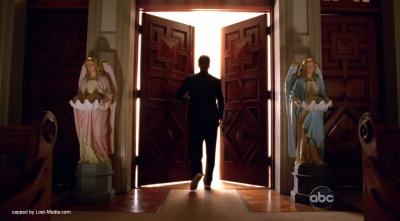
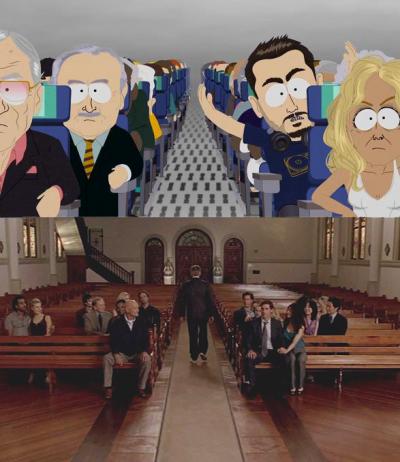
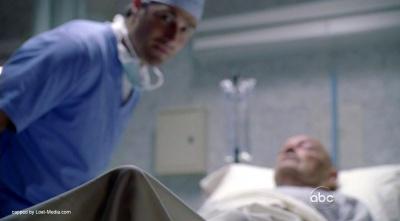
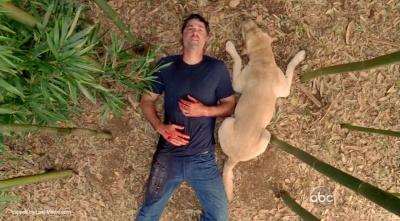
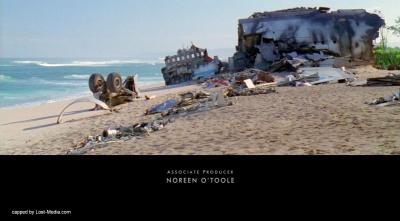
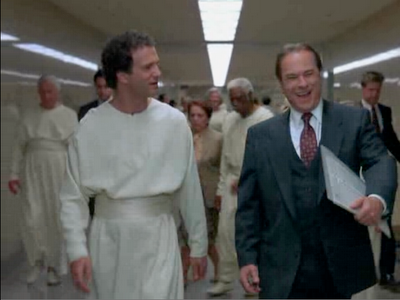
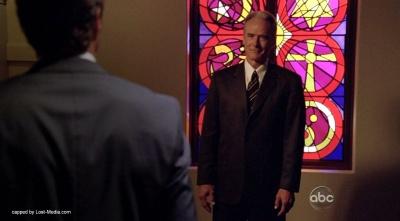
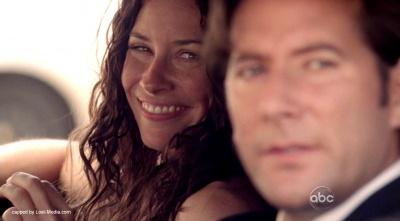
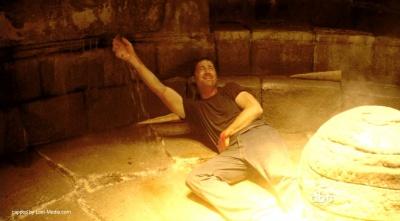
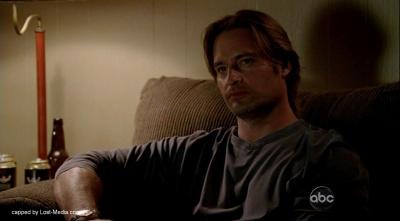
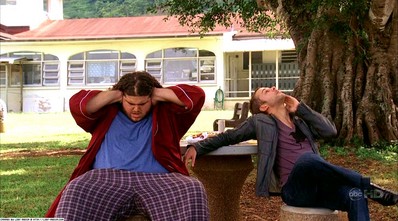
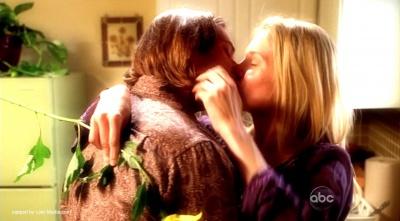
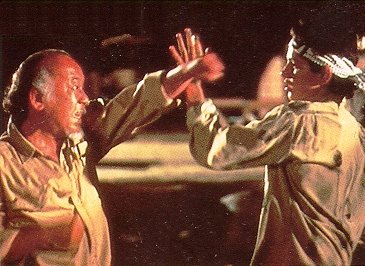
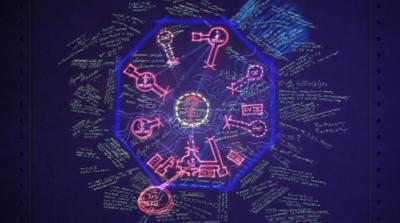



I’ve been surfing big time to find acceptable explanations to the show, to give meaning to the 6-year ride.
Maybe there are better ones out there, but so far this has been the most fulfilling for me, especially as it tried to somehow bridge the gap between the science and the myths, the expectations and the truths.
Which makes me think, are we forgetting that we are all in a big, mysterious island called Earth? That even if we don’t understand the things that happen to us we just keep on fighting and hoping to find the light?
Great article for a great show that was ahead of its time.
Thanks Lambert! I’ve written more about how the Island is a metaphor for the world we live in and bridge science and spirituality in my other articles. If you’re interested, feel free to check them out here:
http://thelaymansanswerstoeverything.com/
Namaste
Marc, good post, thanks for sharing. A number of your observations reminded me of a British show (actually, a pair of related shows) that I have been watching, “Life on Mars” and “Ashes to Ashes.”
In Britain, viewers watched the finales for both “Lost” and the third/final season of “Ashes to Ashes” in the same week, so there’s a lot of comparing/contrasting underway on the the web/in the blogosphere on the other side of the pond.
We get to see the final A2A season, I hope, next year on BBC America. I’ve enjoyed LOM/A2A more than Lost over the years … so I’m looking forward to seeing how the finales compare.
Interesting you should bring up “Life On Mars” Jeff. I don’t know that the British version will have the same resolution as the American, but I’d heard that the latter’s finale was very similar to how I thought LOST would’ve ended which I describe in my book, “The Myth of Lost”:
http://www.amazon.com/dp/0595484565/?tag=wfthecoliseum-20
I personally feel that this ending would’ve been much better at explaining the mysteries of the island.
Is “Life On Mars” still running in the UK? Curious if it ended with the same twist as the American version.
Mark, no, the British version of “Life on Mars” ended with a VERY different twist than the American version. Personally, I preferred the British ending … but I was so happy that the American version was allowed to at least produce an ending for their version after ABC pulled the plug on the series.
I was one of an estimated seven people nationwide who watched the American version faithfully … and while I was disappointed by the ending, I was grateful for a chance to say goodby to the Yank versions of Sam Tyler, Gene Hunt and the rest.
But, back to the Brits … and here’s where it gets tricky, Mark. Two season of “Life on Mars” (British version) were followed by three seasons of a sequel, “Ashes to Ashes.” The sequel, A2A, not only has its own questions to answer, but has added some new dimensions to the questions posed by the original LOM.
It is the sequel, A2A, which aired its final episode on British television in May. I’m guessing that third/fiinal season will air next year on BBC America – right now, we’re watching the second season … and I’m trying to avoid reviews of the third season that will spoil the ending for me before that third season makes it to this side of the pond.
Cool. Did the British version of LOM also end with a twist?
Marc, yes, it did … and it’s one that generated more-than-a-little discussion/debate among fans, since it placed Sam Tyler’s predicament (and his solution to that predicament) in a very different setting from the ‘computer glitch’ resolution of the American version.
Marc, I’ve really enjoyed this discussion, and I appreciate you kicking it off. Although now, I find myself wanting to go online and order-up those two seasons of “Life on Mars” (British version), just to enjoy the journey once again … and to get ready for the final episode of Alex Drake’s story (the resolution to her predicament) on “Ashes to Ashes.”
I might have to do the same. I’ll add it to my list of shows to catch up on now that Lost is over.